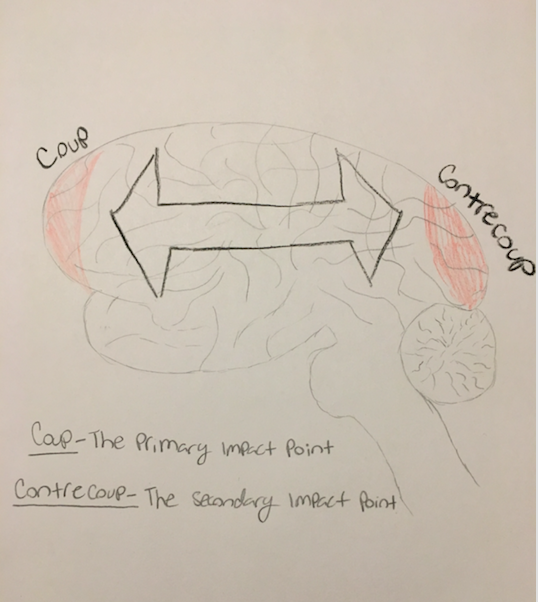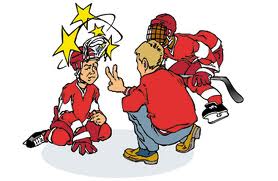Today, we hear about different famous athletes getting concussions all of the time. Or even friends who have taken a rough fall. To receive a concussion in today’s society is almost normal since most people have received at least one. So what are the implications of getting a concussion? Will one mild traumatic brain injury (mtbi) ruin your chances of getting into law school?

The answer to that second question is mostly likely no. Getting one mtbi will not ruin your chances of law school or medical school. However, receiving multiple concussions, especially over a short period of time, might do just that.
What Happens in the Brain?
When you get a concussion, your brain will go into overdrive at first. The brain stretches out which causes mechanoporation. This is when the brain becomes pours and allows various ions to leak out. Because the brain is porous, potassium ions will leave and calcium ions will enter. Levels of the neurotransmitter glutamate will also increase. Since ion levels are out of whack, something called the sodium potassium pump will work harder to try and balance these levels out.
This requires more energy so there is an increase in glycolysis (energy formation). With this increase in glycolysis, glucose metabolism is decreased because of the excessive levels of glucose in the brain. After a short period of time, this excitation goes down and there becomes a problem of supply and demand. The supply of ions goes down and the demand for them increases.
Symptoms of Concussions
Migraines are one of the symptoms of a concussion. These are caused by an increase in ions within the brain. This ion increase is what causes the sensitivity of various of the bodies senses. One can also become disoriented, or even unconscious. Headaches, nausea, fatigue, ringing in the ears, and amnesia surrounding the event are also all immediate symptoms of a concussion. Some that may occur overtime is having a sensitivity to light, problems concentrating, and experiencing sleep disturbances, just to name a few.

Sports and Concussions
It is pretty common to get a concussion while playing contact sports. Currently, there are rules in place to make sure players don’t go back onto the field or court until they are fully healed. This includes a five step program that athletes must follow before they go back into the game. The first step (baseline) is to refrain from all cognitive and physical activity for at least 24 hours. This will go until there are no present symptoms. Then the athletes will go to step one, which is light aerobic activity. If they do not experience symptoms they can go on to step two, moderate activity. If they experience symptoms in step two, they will go back down to step one, if not they go to step three. They will go through this process until they don’t experience symptoms and are fully integrated back into their sport/ activity. This seems like a good program from hind-sight, but athletes can easier lie about experiencing symptoms and go back into the game sooner then they should. So, my question of you is… Do you think, with proper education on the implications of concussions, athletes will actually take the time to fully heal? This is a question that I have pondered for a while now, and I’d like to say yes they will. But at the same time for a lot of athletes its their livelihood and they want to be in the game, so its hard to say a definitive answer.

If you have a concussion or think you have a concussion, go to the doctor and get checked out. If you have any questions check out the link below. This contains a giant list of support groups for concussions all over the United States.
https://docs.google.com/spreadsheets/d/1FcmJeilxXnb1PFCPeZKMUiLWqpRDMk_NUrL1JgU8UPs/edit#gid=0
Sources:
https://www.mayoclinic.org/diseases-conditions/concussion/symptoms-causes/syc-20355594
https://moodle.cord.edu/pluginfile.php/625289/mod_resource/content/3/2014%20The_New_Neurometabolic_Cascade_of_Concussion.3.pdf
